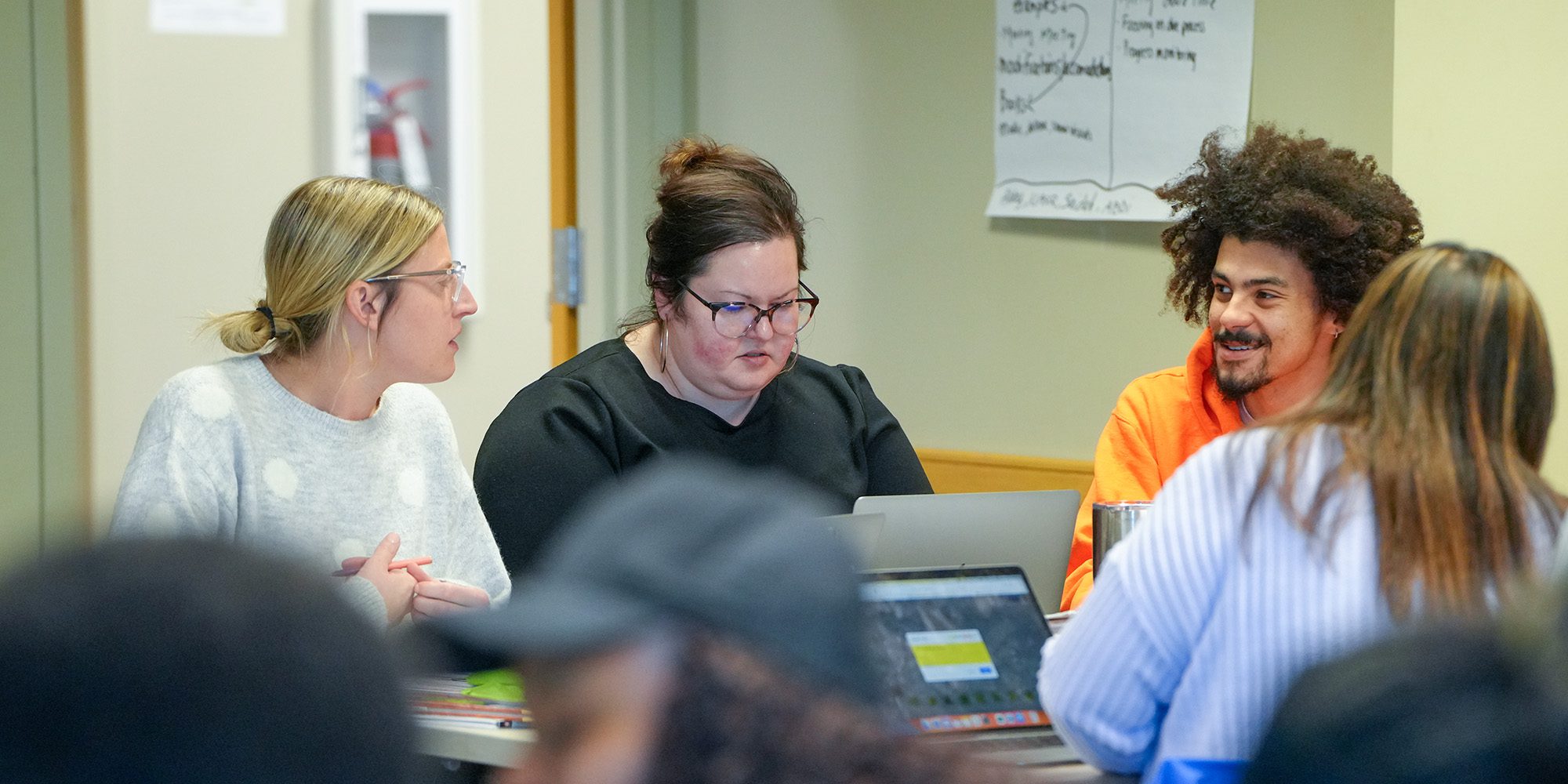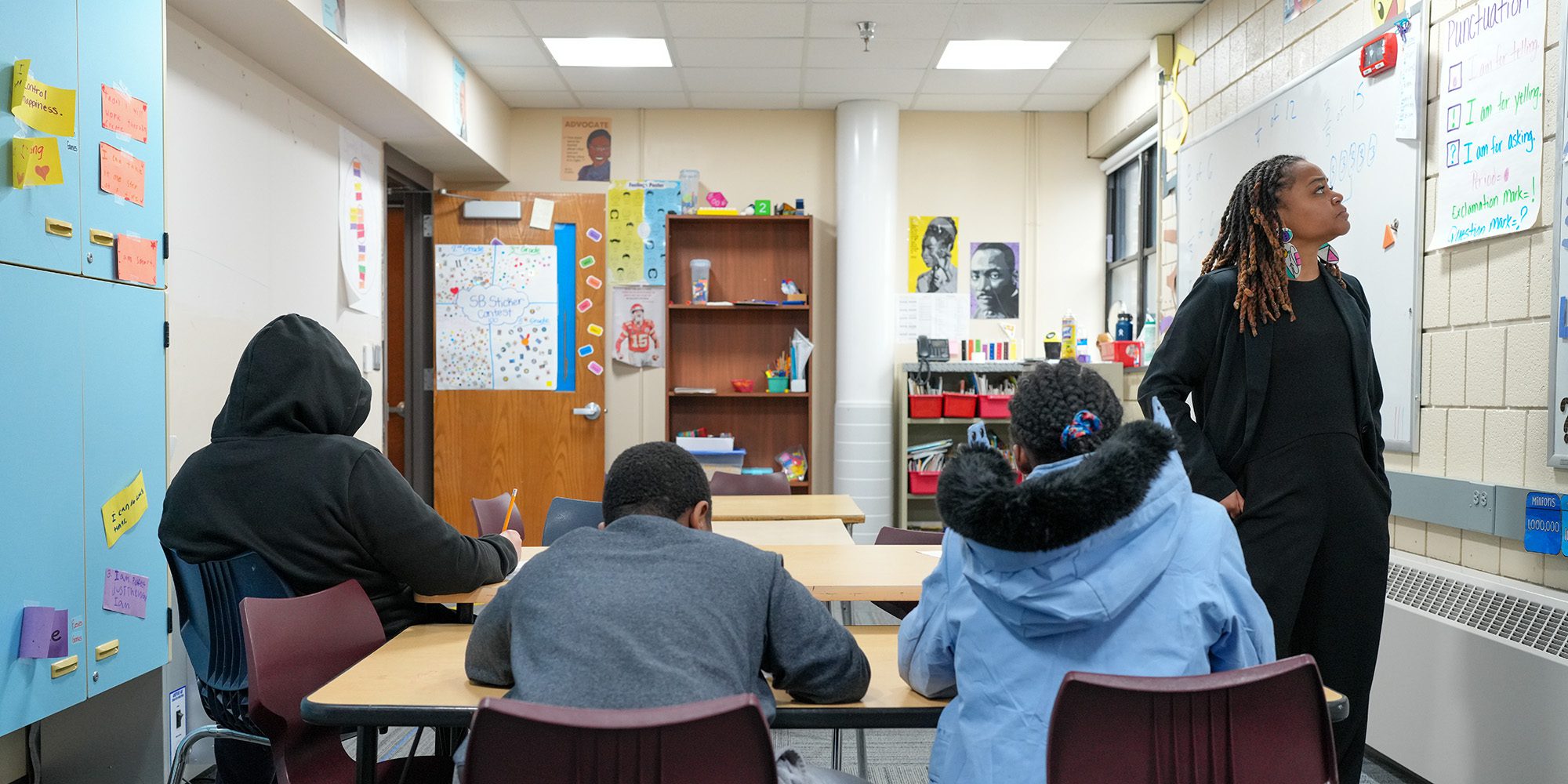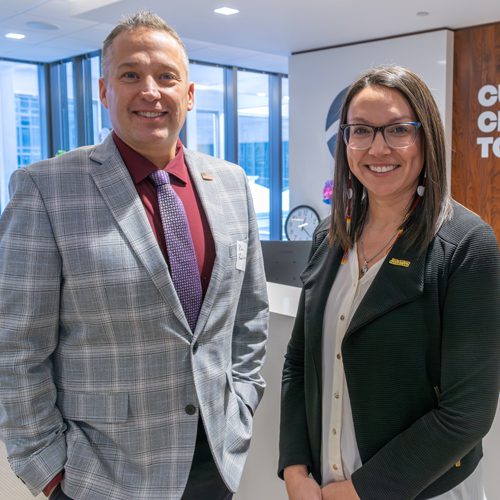Investing in
Leadership
and Literacy

When the Minneapolis Foundation launched our Reimagine Education initiative in 2019, we were guided by the vision of a K-12 system that gives all students access to an excellent education.
“We support community-led efforts that are informed by data and—crucially—by the Minnesotans with most at stake in our schools: Families, teachers, principals, and especially the students who will shape our state’s future. ” — Patrice Relerford, Vice President of Collective Impact and Giving
Our approach to this work is multi-pronged, mixing research, grants, advocacy, and partnerships. During the past four years, our investments have ranged from sponsorship of a statewide student conference to a report on how distance learning affected education equity during the pandemic. We’ve also made more than $4.1 million in Reimagine Education grants to address structural inequities in education, empower youth and communities, and provide resources for educators to implement strategies that make schools more inclusive.
Our work continues to evolve in response to emerging needs and opportunities. Most recently, we announced a 2024-25 Legislative Policy Agenda that includes several key measures to strengthen schools.
In listening to our partners, we have identified two themes that organize much of our work today: Leadership and literacy. Both are bright threads in the tapestry of our community’s work to nurture school excellence.

Leadership
Our Strategic Framework calls on us to empower the people who are closest to issues in our community, and this value undergirds our education investments. That’s why so many of our Reimagine Education grants amplify youth voices and provide resources to teachers who are working to create more inclusive learning environments.
We also elevate the voices of principals, who play a pivotal role in schools and have critical insights on the resources needed to drive student success. Two years ago, we teamed up with researchers at the University of Minnesota to launch the Minnesota Principals Survey, a first-of-its-kind biennial survey that gathers the perspectives of hundreds of school leaders statewide. This spring, we are advocating for state funding to continue the survey so that policymakers and education leaders statewide can continue to benefit from its insights.
Another recent example of this work is our partnership with the Shakopee Mdewakanton Sioux Community on mini-grants to support classroom learning about Native American culture, history, and modern tribal governments. The funding we’re administering this spring will flow directly to teachers and schools with great ideas for classroom materials, guest speakers, and lesson plans that teach students about the important contributions of Indigenous communities in Minnesota.
Literacy
Last year, Minnesota enacted the READ Act, a groundbreaking transformation in how reading is taught in schools across the state. The new law aims to have every Minnesota child reading at or above grade level every year, starting in kindergarten. It sets new expectations for teaching phonics and decoding strategies to K-3 students, along with investments in reading curriculum, teacher training, and changes to how college and universities train teachers in the future.
Rolling out the READ Act will be a huge undertaking, and so this year we are advocating for additional state resources to support schools and education leaders as they implement it. Through the Foundation’s grantmaking, we also invest in programs such as Groves Literacy Partnerships, which provides local schools with professional development, collaboration, and a curriculum that emphasizes systematic phonics instruction and proven strategies to enhance reading fluency and comprehension.
Looking Ahead
“The challenges and opportunities in our schools—and the people stepping forward to address them—are too diverse for a ‘one-size-fits-all’ approach,” Relerford said. “The Minneapolis Foundation is committed to supporting a variety of solutions that reflect the perspectives and ingenuity of Minnesotans, using every tool available.”
We look forward to sharing updates about our work throughout the legislative session, at upcoming events, and when we open our next round of Reimagine Education grants this spring.

